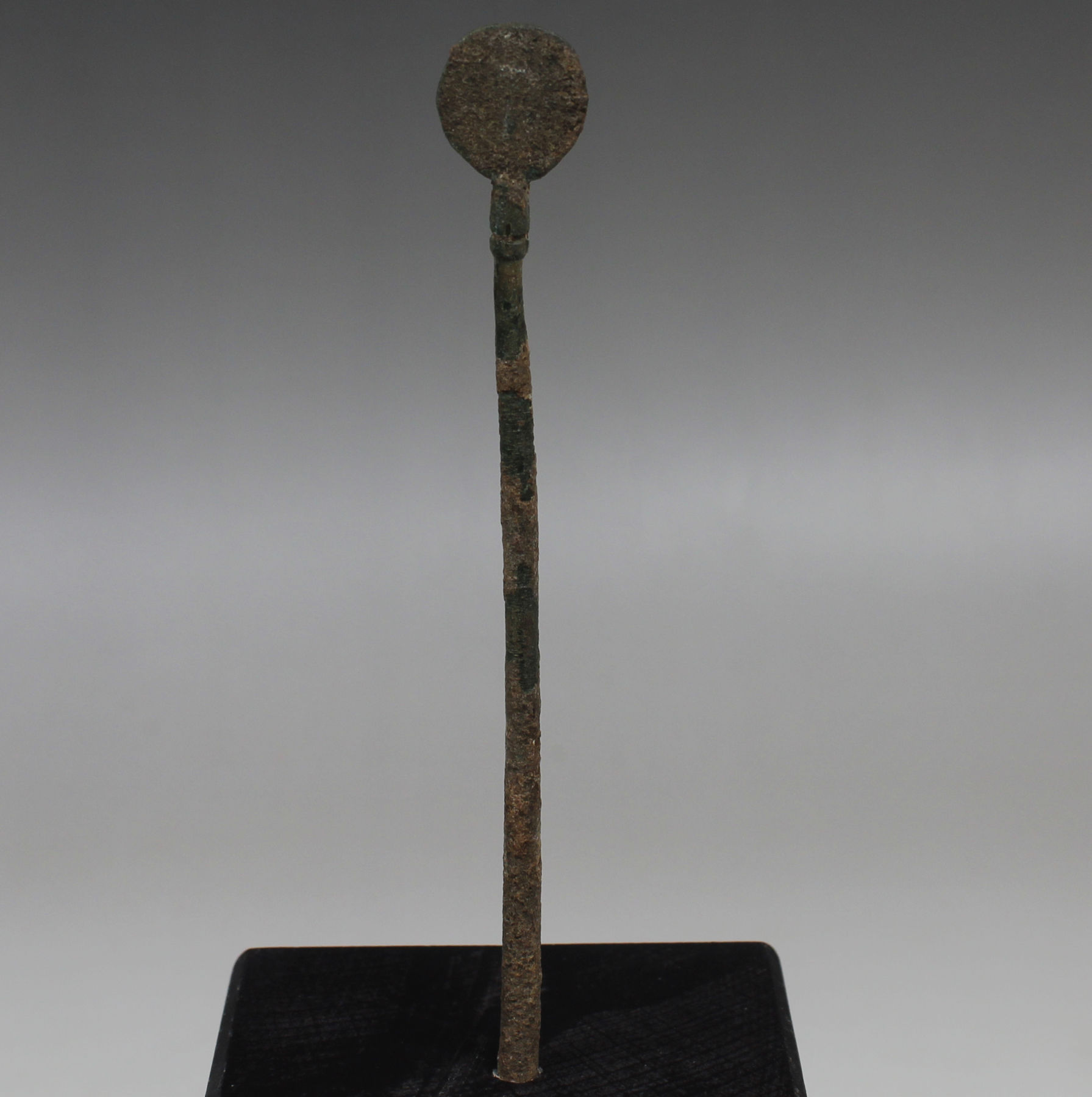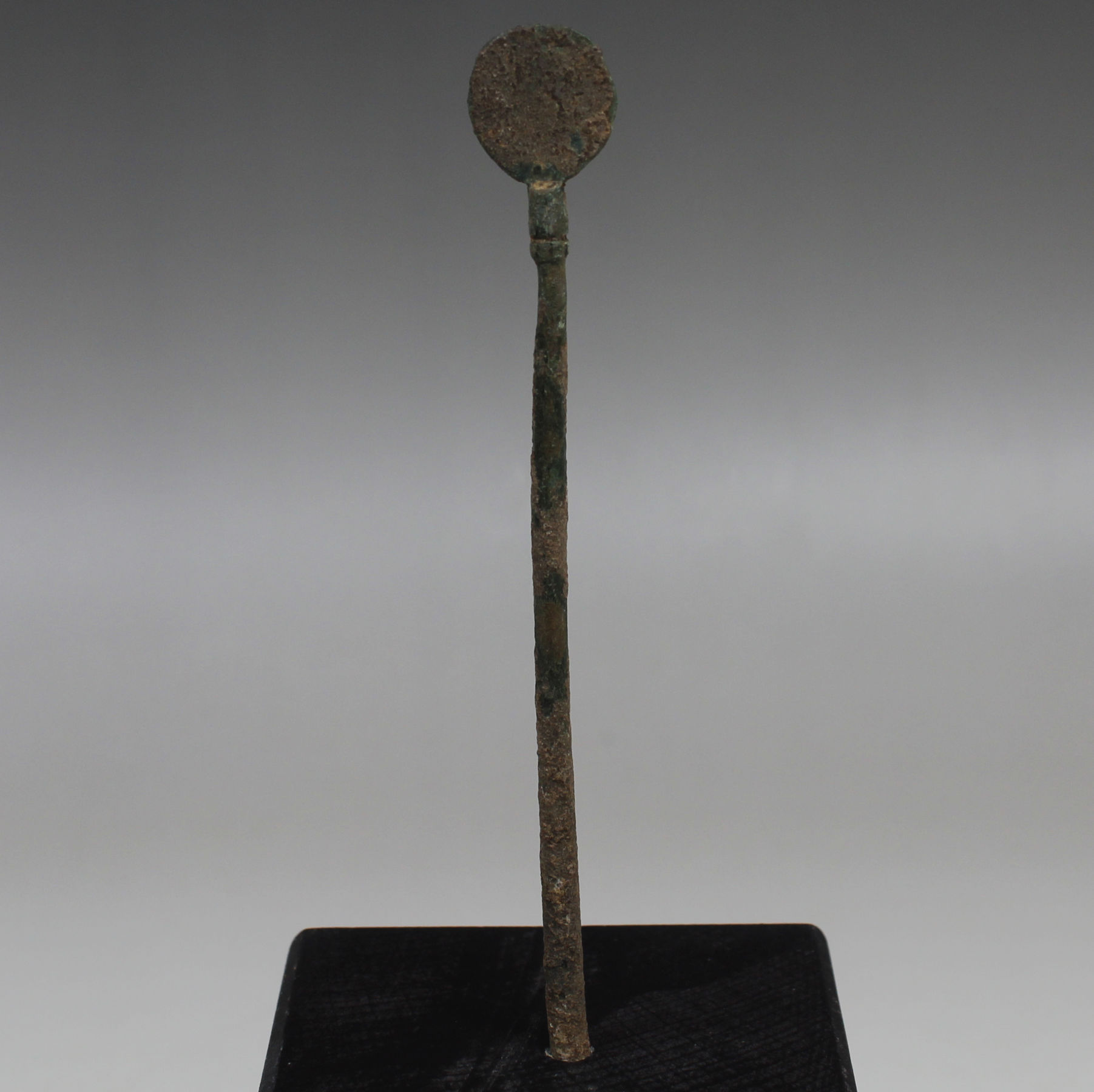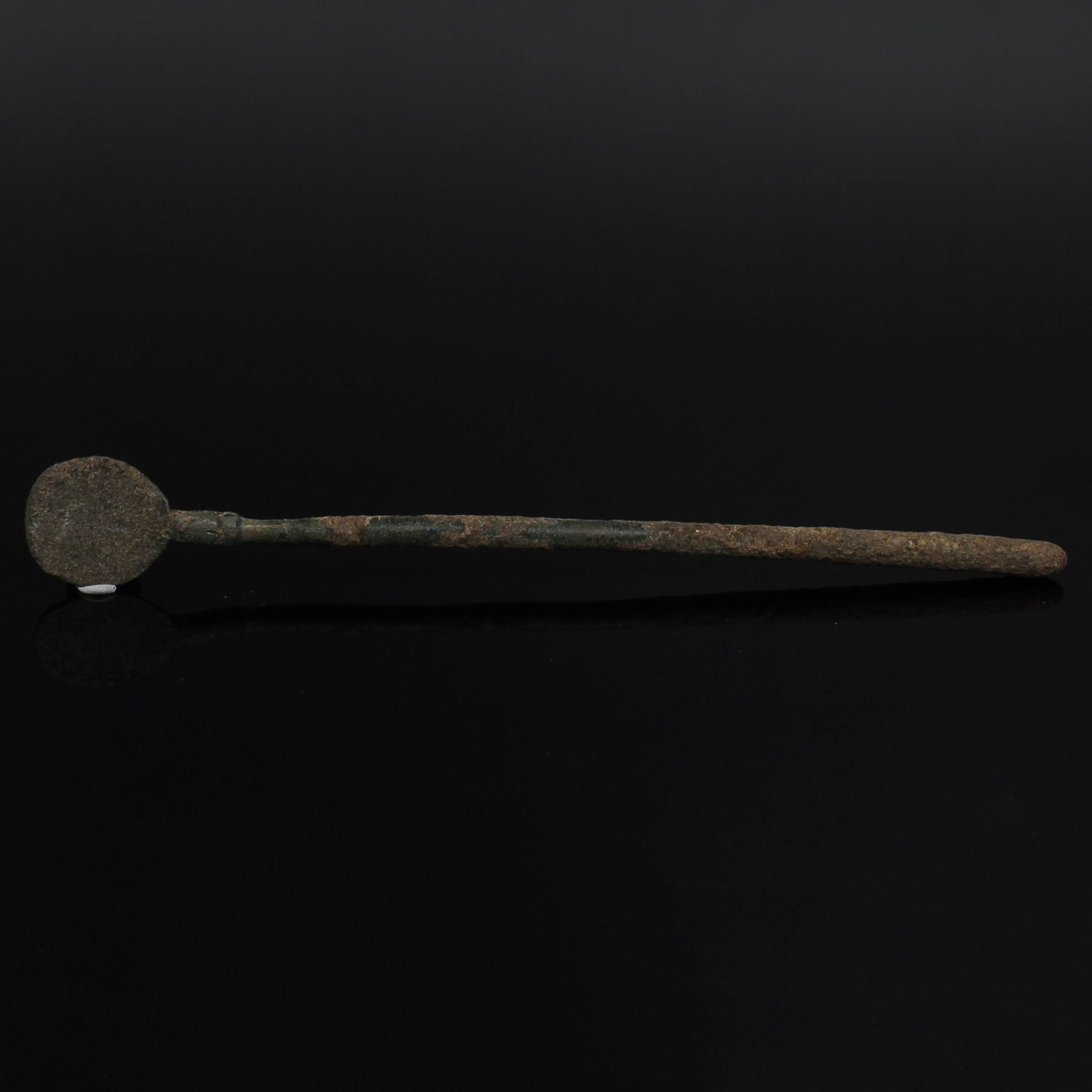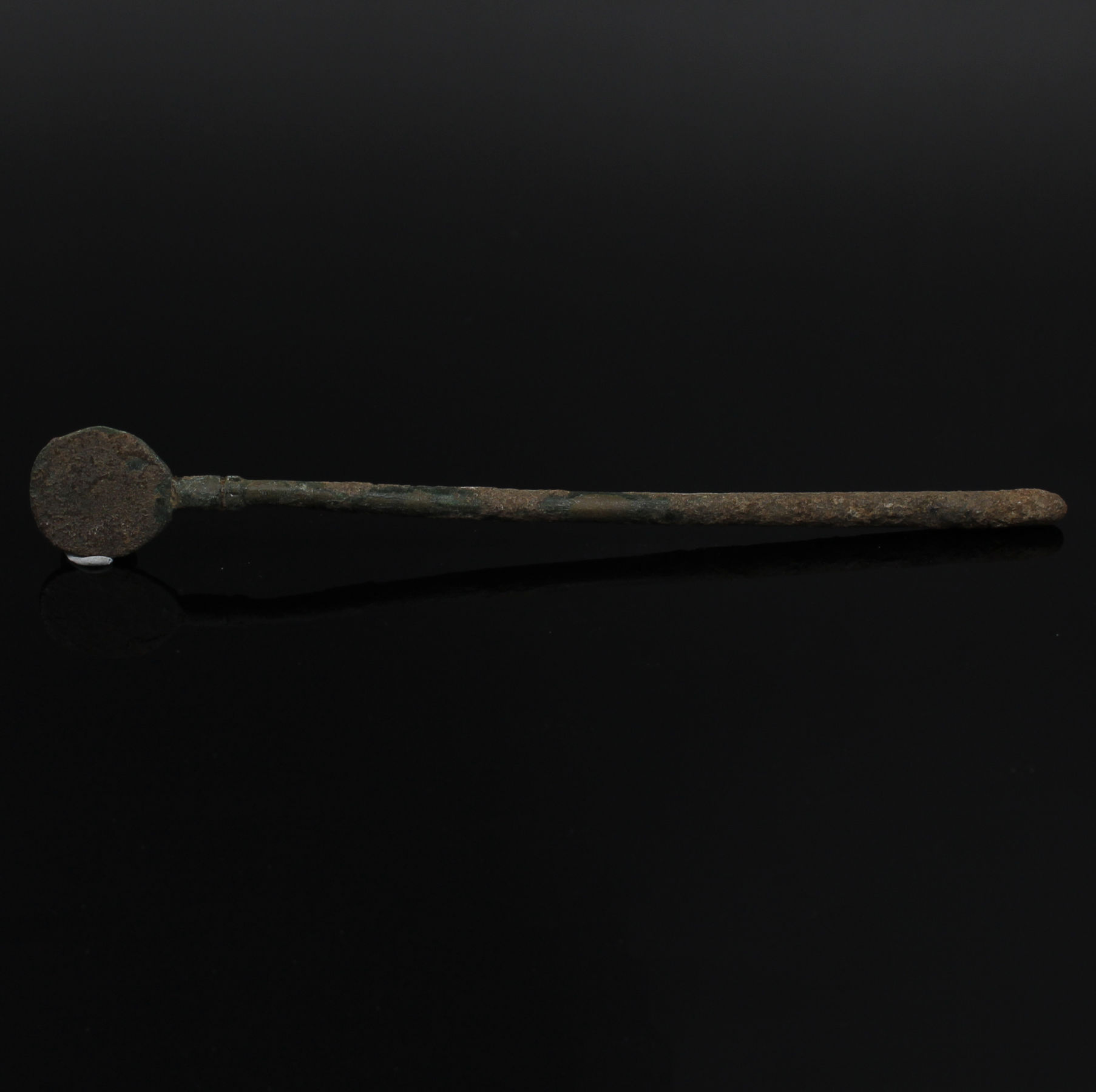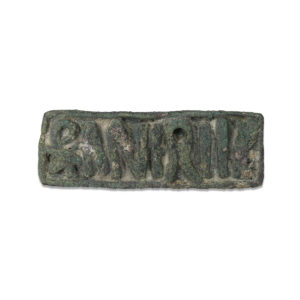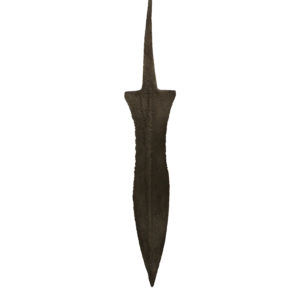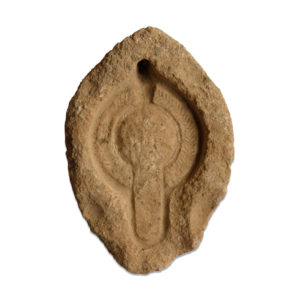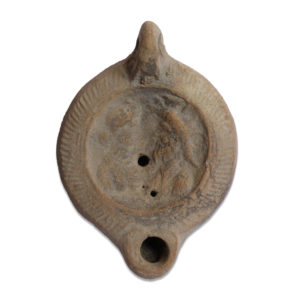Description
| ITEM | Medical instrument, spoon probe (cyathiscomele) |
| MATERIAL | Bronze |
| CULTURE | Roman |
| PERIOD | 1st – 3rd Century A.D |
| DIMENSIONS | 106 mm x 14 mm |
| CONDITION | Good condition |
| PROVENANCE | Ex Polish private collection, E., Ex Germany private collection acquired before 2003 |
Roman bronze medical instruments, meticulously fashioned with skill and care, epitomize the sophistication of ancient healthcare. These robust implements, encompassing scalpels, forceps, and probes, manifest the Romans’ dedication to surgical precision and patient well-being. These tools played pivotal roles in an array of medical procedures, from intricate surgeries to wound management, underscoring the Romans’ unwavering commitment to the practice and science of healing. In contemporary times, these relics remain enduring symbols of the enduring influence of Roman medicine and surgical prowess.
This is similar to the spatula probe, but has a narrow leaf shaped spoon in place of the spatula. They also have the same olivary end as spatula probes. For pharmaceutical purposes the spoon was used to remove medicines from their flasks, explaining the many different sizes of the spoon and handle. It might have been used to mix ointments as well. For surgery Milne suggests it might have been used as a curette (1907: 62). There is also the possibility that it was applied in lithotomy operations to help remove stones from the urethra (Jackson 1994b: 181; Milne 1907: 62).


